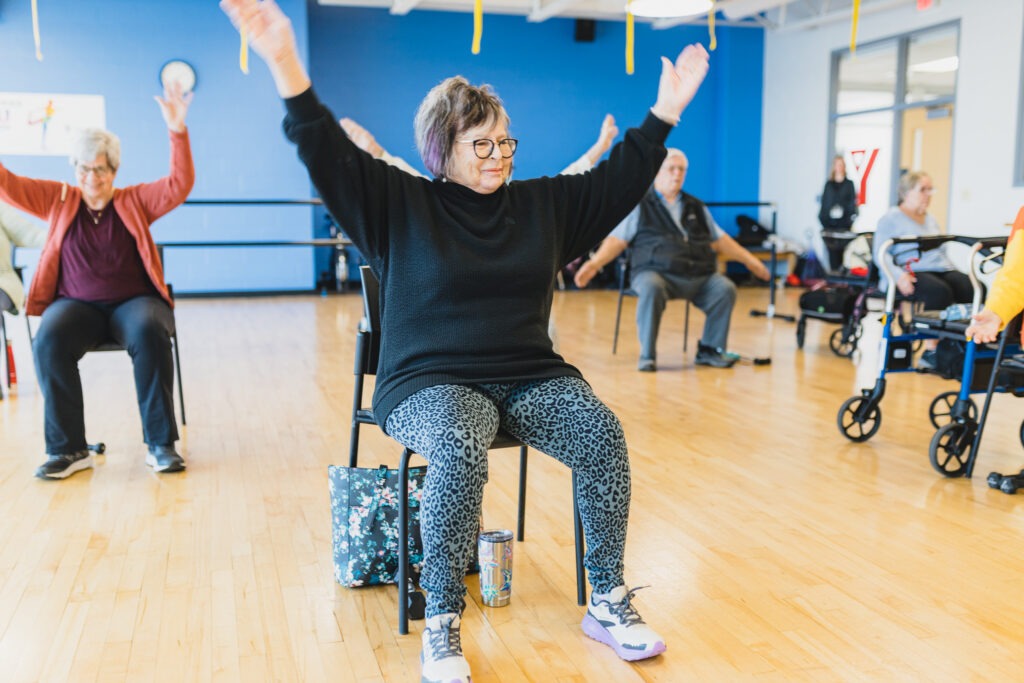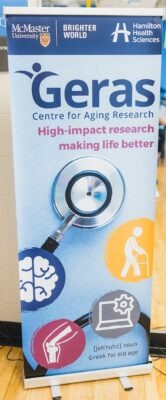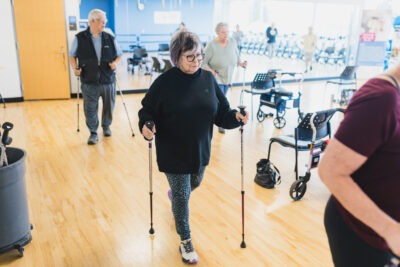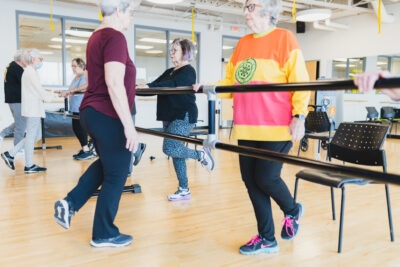
Study aims to help older adults age in place
New fitness study could be game-changer for older adults

A new Hamilton-based study on aging could help older adults live independently at home, for longer.
The OPTIMAL Fitness study was developed by the Geras Centre for Aging Research in partnership with the YMCA of Hamilton/Burlington/Brantford and Upper James Physio.
Participation is free. To qualify, participants must be 65 years of age or older and feel that they’re losing energy and strength as they’re aging. Participants can’t be taking part in other group exercise programs or using protein supplements, since this could skew results.
The study is based at the Les Chater Family YMCA on the Hamilton Mountain, with plans to expand to YMCAs in downtown Hamilton, Burlington, Waterdown and Brantford. Anyone interested can call the Geras study line at 905-521-2100 ext. 12437.
“I thought this would be a great chance to get back in the groove.”
Pam and Dave Edgcumbe’s plans for their golden years include living independently in their Binbrook home for as long as possible.

Exercises developed for the OPTIMAL Fitness Study include walking around the gym.
Staying healthy is key to making that goal a reality, says Pam, 73. For Dave, also in his 70s, this includes morning workouts seven days a week at the Les Chater Family YMCA.
For Pam, it means improving her fitness level and finding more time for regular exercise. So when Pam learned about the OPTIMAL Fitness study, developed by experts in aging, she was quick to sign up.
“I was feeling bad that I wasn’t exercising as much as I should,” says Pam. “I thought this would be a great chance to get back in the groove.”
Partnering for leading-edge research
Geras is part of Hamilton Health Sciences (HHS) and is affiliated with McMaster University.
Its mission is to make life better for older adults with research tackling the biggest challenges facing our aging population. The Les Chater Family YMCA delivers exercise classes that are specially designed for the study, while contributions by Upper James Physio include evaluating participants and providing exercise `homework.’ The study is funded by the Canadian Institutes of Health Research and Hamilton Academic Health Sciences Organization.
Four-month commitment
The study consists of 10 four-month sessions taking place over the next two years. Pam was in the first session, which started in January and wrapped up at the end of April. The next four-month block is expected to launch later this month, and participants are currently being recruited.

Dr. Alexandra Papaioannou, Geras executive director
As older adults age, they may notice that it’s harder to do everyday tasks like getting dressed, climbing stairs or picking up laundry baskets, says Dr. Alexandra Papaioannou, the study’s lead, and executive director of Geras. “But frailty and mobility challenges are often reversible, which is why this study is so potentially impactful for supporting older adults who want to age in place.”

Dr. George Ioannidis, Geras deputy director
In Canada, 1.2 million people are over the age of 65 and living with frailty or mobility challenges, adds Dr. George Ioannidis, deputy director for Geras.
“But it’s never too late to start making positive changes. Through exercise programs like the one developed for this study, we may be able to help older adults live safely at home instead of entering long-term care.”
Study participants are divided into three groups, with 11 participants in each:
Group 1 – This control group lives their lives as usual, but also receives vitamin D supplements to help bones stay healthy and strong. Their results, at the end of the four-month session, are compared to the other two groups.
Group 2 – This group receives vitamin D, and takes part in two specially-designed exercise classes each week at the YMCA. Classes include a gentle warm-up followed by cardio, balance and strength-building exercises, and a cool down. Classes become increasingly challenging over the four months, as participants build strength and endurance. This group is also required to perform an additional one hour of exercise each week at home. These additional exercises, called `homework,’ are provided by the study.
Group three – This group does the same as group two, but also receives protein supplements and meets with a pharmacist to review any medications they’re taking. Pam was recruited for this group.

The OPTIMAL Fitness Study includes balancing exercises
“We’re comparing these three groups to see which one does the best in terms of improving mobility and reducing frailty,” says Ioannidis. When the study wraps up in two years, it will have involved 324 people in total.
Quality of life
Pam was concerned about falls before joining the study but feels much more confident now. “The classes really helped me to improve my balance,” she says. “My energy level is much higher too.”

Genevieve Hladysh, YMCA senior regional manager
YMCA senior regional manager Genevieve Hladysh recommended the study to Pam, who also happens to be her mother. “My mom is a vibrant older adult and a busy community volunteer with a wide circle of friends,” says Hladysh. “Her happiness and quality of life are very strongly tied to staying independent and active in her community as she ages.”
Hladysh would like to see the study expanded across all YMCA of Hamilton/Burlington/Brantford sites. When the study wraps up in two years, it has the potential to become a permanent YMCA program under the organization’s LiveWell umbrella, adds Hladysh. LiveWell is a series of supervised exercise and education programs delivered in partnership with the YMCA, HHS and McMaster University, for people with chronic health conditions and illnesses.
“This study could be the beginning of a leading-edge program to support older adults,” says Hladysh. “If it becomes a permanent program with our YMCA association, we would offer to share it at YMCAs across Canada so that older adults, nationally, can benefit from this innovative, made-in-Hamilton program.”
